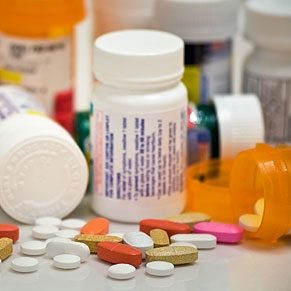
1. Run Your Meds Buy Your Doctor
Every time you visit a new doctor, or visit an old doctor after several months, bring every pill you’re currently taking. Throw into a plastic bag every prescription medicine, vitamin, herb, supplement, and over-the-counter drug-even the acetylsalicylic acid-that you take in a typical day. Insist that your doctor look over it all to see if there are any problematic combinations or redundancies.
2. Use Occam ‘s Razor
Ask your health-care professional if there is a way to streamline the medications you take. Some medications can be given once a day in sustained release, rather than having to take them three times a day. Others can be taken once per day or in a combination product that can decrease the numbers of drugs you’re taking overall. Some can even be taken once a week!
3. Don’t Cheat On Your Pharmacist
Consolidate all your prescriptions to one pharmacy, and then meet with the pharmacist. Pharmacists are more than just prescription fillers. They are specially trained in understanding possible medicine interactions, including interactions with herbal supplements. When you consolidate all your prescriptions, your pharmacist can be watchful for just such things. In addition, some pharmacists receive special training in managing diseases like hypertension and diabetes and can provide counseling sessions. They are also a great resource for insider information on the best over-the-counter drugs.
4. Put All Your Eggs In One Basket
Then consolidate all your medicines at home to one location. It is generally wiser to have everything together rather than scattered around the house, car, purse, or briefcase. Choose a space that is dark, and that is perpetually at room temperature (unless instructions call for medications to be refrigerated). It should be accessible to adults, but not children. While you are doing this, check each container to see if any have passed their expiration dates. Throw out any prescription medication that you no longer need. Saving those last few antibiotics for the next infection is absolutely the wrong thing for you to do!
5. Create a Rigid Pill-Taking Routine
You want to take your pills at the same time and place every day, and you want a trigger to remind you to take them. Some ways to proceed:
- Buy a pill box or other medication gadget, and each Sunday evening, restock it for the coming week. Place the pill box at your preferred pill-taking site, and do not move it!
- Link your pill taking to a part of your morning ritual, such as brushing your teeth, or drinking your first glass of water or juice for the day.
- Set the alarm on your watch, computer, cellphone, or personal digital assistant to beep when it’s time to take a pill. Then, no matter where you are, or how busy you are, you’ll get a reminder.
6. Measure Carefully
Buy measuring spoons just for your medicine, and store them with your medicine. A kitchen teaspoon or tablespoon is rarely accurate.
7. Watch Out for Shift Work
Working different shifts can create timing problems when taking your medications. Try to take them when you would normally have a shift change so the timing is similar whether you’re going to bed or to work.
8. Be Informed
Ask your doctor these questions about any new prescription:
- What is this medicine for?
- What side effects might I encounter?
- What side effects are dangerous and should impel me to stop taking this medicine and call you?
- If I have to stop this medicine because of side effects, is there another that I can take instead?
- What are the dangers for me if I don’t take this medicine?
- What time of day should I take it?
- Should I take it with food or without?
- Can I take it with any kind of liquid, or only with water?
- How will I know if this medicine is working?
- How long should it take to begin working?
- How long should I continue taking this medicine?
Remember: While only a doctor can prescribe medicine, you are the one ultimately responsible for your health. Taking a prescription drug is your choice, and doing it smartly is your responsibility.
9. Follow the Golden Rules of Medicine
- Provide full disclosure to your doctor and pharmacist: that you have allergies, that you are pregnant, that you have particularly high or low blood pressure, that you are prone to nausea, or that you are on a diet. All can affect a drug’s efficacy.
- When you pick up your prescription, open the bag immediately to verify that the medication you received is the correct one, at the right dosage, for the correct duration.
- Take only the amount of medication prescribed or listed on the label.
- Get your prescriptions filled during slow times for the pharmacist, to avoid mix-ups.
- Whenever you purchase a supplement, ask your pharmacist if it has any potential interactions with prescription or over-the-counter drugs you’re taking.
- Don’t use or share medications prescribed for someone else.
- Don’t take your medicine in the dark or without glasses or contacts if you need these aids to see.
- Keep your medications in their original packaging with the full instructions, even over-the-counter and herbal products.